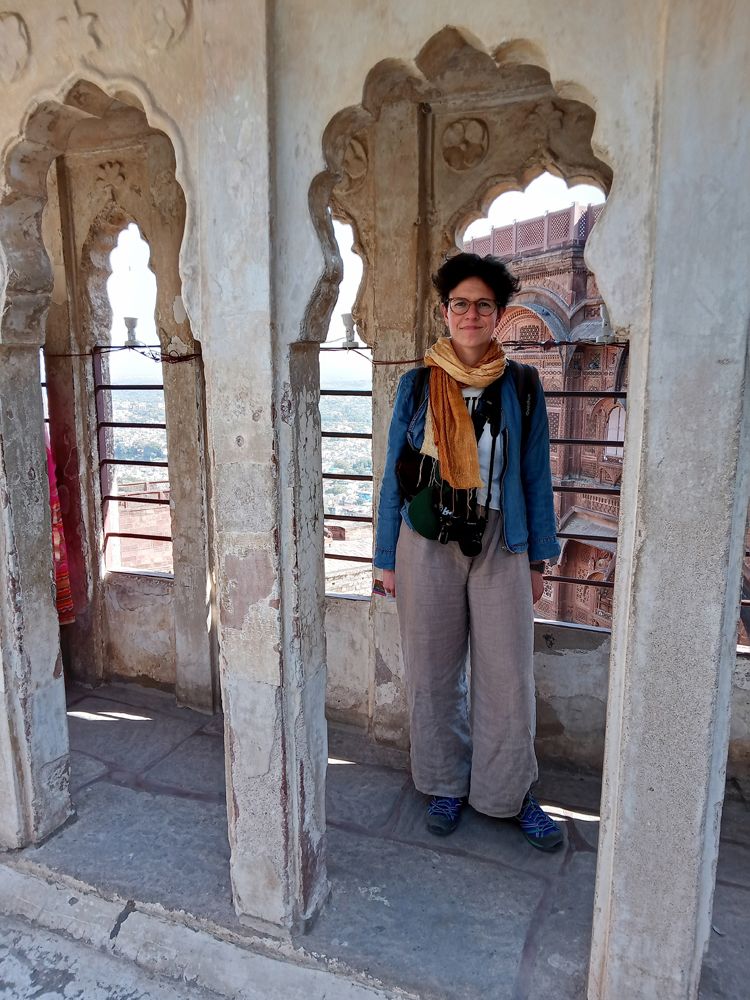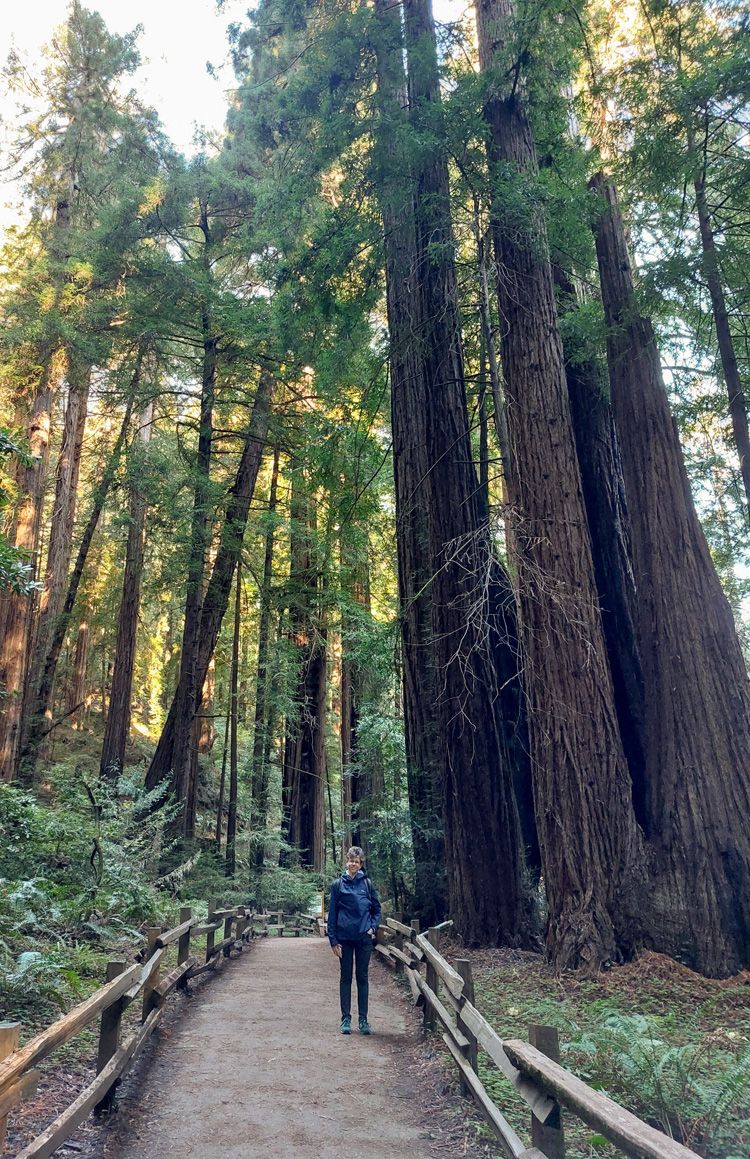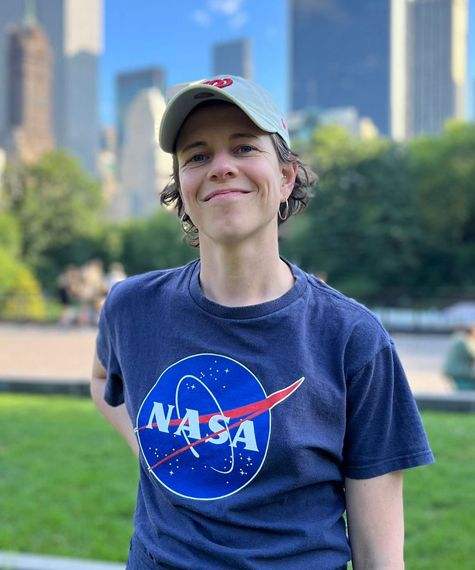Early Career Scientist Spotlight
Dr. Caterina Mogno (she/her/hers)
Atmospheric Scientist
Atmospheric Chemistry and Dynamics Laboratory (614)
What inspired you to pursue a career in Atmospheric and Climate Science?
I started considering a career in climate science during the time I spent in Paris, France, as an exchange student as part of my Masters in Theoretical Physics (European Erasmus+ program). I was in Paris between 2015 and 2016, when the Paris Agreement was signed during the 21st United Nations Climate Change conference (UN COP21). Being exposed to the COP21 deepened my interest in climate change, and I started taking into consideration a career where I could contribute to tackling the climate crisis with my work as a scientist.
I subsequently got the opportunity to do an internship at the Joint Research Center of the European Commission (JRC), where I contributed to the research that supports EU policies on sustainable transportation and vehicle emissions standards and control.
It was then that I decided to do a PhD in Atmospheric Sciences at the University of Edinburgh, in the United Kingdom, where I started researching on modeling air pollution, before continuing my journey here at NASA Goddard, where I am currently working at the Atmospheric Chemistry and Dynamics Lab.

Credit: A kind passerby
Tell us about the research projects you are currently working on.
At present, I am working on the NASA Goddard Earth Observing System Chemistry-Climate Model (GEOS-CCM). GEOS-CCM is a physically-based numerical model that is suitable for climate studies, both for simulating historical atmospheric composition as well as projecting future one under different emissions scenarios.
In particular, in my current project, I am evaluating the aerosols module component in the GEOS-CCM. According to the Intergovernmental Panel on Climate Change (IPCC), aerosols (i.e., airborne solid or liquid particles in the atmosphere) contribute to one of the largest uncertainties in our predictions of climate change, so it is important to advance aerosols understanding and constraining their role in regulating the Earth’s climate and air quality.
I compare the GEOS-CCM model predictions with a variety of aerosol observations, using data from satellites instruments (such as the NASA Moderate Resolution Imaging Spectroradiometer, MODIS), and from ground-based and in-situ measurements (like the aerosol robotic network, AERONET, and particulate matter pollution monitoring sites).
Comparing the model predictions with observations helps us assess the strengths and the weaknesses of the current GEOS-CCM, serving as a benchmark for future model improvements, but also help us understand and interpret the atmospheric observations.

Credit: Fabrizio Gambini
What is one space mission that you are particularly excited about, and why?
I am really excited about the PACE mission (Plankton, Aerosol, Cloud, ocean Ecosystem) which was successfully launched early this February 2024! PACE will bring a completely new understanding of biogeochemical cycles and ocean ecosystems and how they interact with the atmosphere and respond to climate change.
In addition, the two polarimeters onboard PACE will provide new global measurements of aerosols’ and cloud’s optical and microphysical properties with unprecedented detail. This will also greatly enhance our ability to better constrain and improve aerosol and aerosol-cloud interaction processes in climate models such as the GEOS-CCM model I am working with.
What research accomplishment are you most proud of?
One of the research accomplishments I am most proud of was the last project of my PhD. The project was about modeling the impact of future electric vehicle fleet on air quality over Delhi, India. I am mostly proud of it because it was an idea I initially conceptualized, which then resulted in a collaboration across three continents, with colleagues from India and the US who brought interdisciplinary expertise to the project. It also gave me the opportunity to spend three months as a visiting researcher at the University of Michigan, which was valuable for the project work itself as well as a great occasion for professional development as an early-career scientist.
What do you enjoy the most about your job?
What I like the most about my current job is to be able to work on interesting and challenging projects, which allow me to always learn something new as well as to collaborate with inspiring and smart people from all over the world. It is a privilege to be here at NASA Goddard working among great scientists and with outstanding resources.
Also, being part of the NASA Earth Sciences Division community working together to advance the science of climate change as well as its applications for the benefit of society, really keeps me motivated and inspired in my everyday work.

Credit: Caterina Mogno
Tell us about a unique or interesting component of your work-life balance.
As I work on a computer most of my day, I like to recharge myself by engaging in physical activities and spending time outdoors in contact with nature. I am a regular yoga practitioner, I love cooking (especially Italian dishes) and I enjoy exploring the outdoors around Washington, DC, where I live during the weekends. I recently also picked up birdwatching (a classic pandemic new hobby). Also, attending national and international conferences for work is a great way to visit and discover new places, and I always try to do some personal travel during these times.

Credit: A kind passerby
What early career advice do you have for those looking to do what you do?
This might be a general type of advice, but it is something I learned along the way and has been really valuable for me. Beside the technical skills, I found it very important to cultivate genuine relationships and connections in the workplace. I owe a lot to the people I met along my career so far. Even if the nature of work connections is temporary, in particular for early-career scientists for whom its common to change institutions every few years, fostering sincere and meaningful relationships with supervisors, peers, and collaborators not only helps to be a better scientist and enjoy the journey, but also can benefit your career growth. People you trust and who trust you will always be willing to help out and support your career aspirations and choices.
Biography
Home Town:
Scorzè, Venice - Italy
Undergraduate Degree:
B.Sc. Physics, University of Padua, Italy
Post-graduate Degrees:
M.Sc. Theoretical Physics (Complex Systems Physics), University of Padua, Italy
Ph.D. Atmospheric and Environmental Sciences, The University of Edinburgh, United Kingdom

